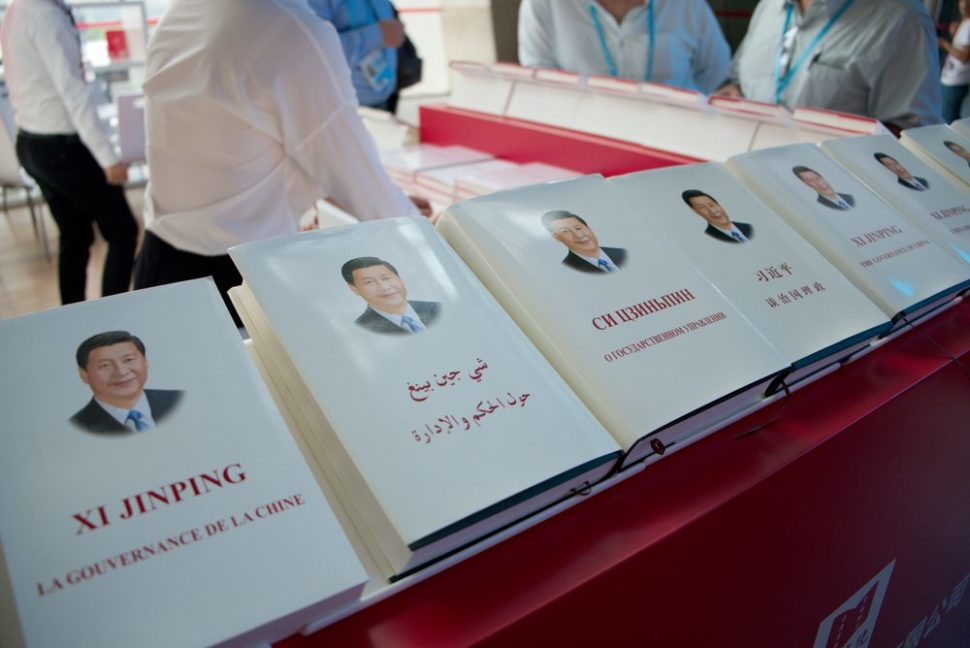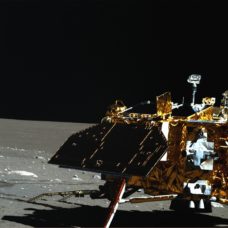At the 19th National Congress of the Communist Party, the Chinese Premier delivered a marathon keynote speech that outlines the CPC policy for the next 5 years. What are the major takeaways?
After the death of Mao Zedong in 1976, a power struggle ensued and Mao’s “Gang of Four” were imprisoned. Chinese leaders felt the need for a collective leadership of the party to prevent such void left by a central authority figure.
In 1977, Deng Xiaoping, the reformist, was reinstated and appointed General Secretary of the Communist Party of China, and his successors (ex-presidents Jiang Zemin and Hu Jintao) didn’t deviate from the path.
#XiJinping promises a 'beautiful China'.Click To TweetThen came Xi Jinping who, during his first 5-year term, managed to become China’s most powerful leader since Mao, serving as the President of the People’s Republic of China, the CPC’s General Secretary (i.e., chief ideologue), and commander in chief of the armed forces.
Clap for “Uncle Xi”!
For a whole week (October 18th to the 24th), the 19th Party Congress of the Communist Party of China (CPC), the largest political event in China was held. The last convention was held in 2012.
This Congress was kicked off by a 205-minute long opening speech by President Xi Jinping that the Chinese people warmly clapped for–not just with their hands.
Tencent developed a new propaganda app, which includes a ‘game’ where users have 19 seconds to press the screen and applaud as many times as possible during speech of the Chinese president.
The app, called “Excellent Speech: Clap for Xi Jinping” went viral; as of last Wednesday, October 18th, it was played over 400 million times with a cumulative number of claps that surpassed one billion hits.
In office since November 15th, 2012, Uncle Xi has gained a status close to Mao’s, developing a cult persona among the Chinese who have come to elevate him as a revolutionary hero. The party delegates unanimously voted for Xi’s name to officially written in the communist party’s constitution, the only leader after Mao to receive such an honor.
Xi, addressing the 2,287 CPC delegates, spoke for over three hours and 23 minutes, here are 3 points that sum up his public policy speech.
1. China as a Global Leader
Xi’s thoughts fall within the legacy of Deng Xiaoping, who launched economic reforms in the 1970s that helped China to be the second world superpower.
As he prepares to initiate a second term, Xi Jinping promises “a new era”, characterized by a Chinese socialism that is a “great cause”, which can serve as a model to other developing countries wanting to accelerate their modernization.
The new era evoked by Xi is expected to last thirty years, (until 2049 – China’s centenary) and entails a greater role for China to play on the world’s stage.
Taking an indirect jab at President Trump’s “America First”, President Xi Jingping said:
“No country can alone address the many challenges facing mankind; no country can afford to retreat into self-isolation.”
What does this mean for tech innovation? Will the country take a collaborative effort to innovation by sharing findings with other countries? Or, will this create a monopolistic situation akin to the current model around REEs? Check out our coverage of China’s REEs dominance here.
Given the next point of Xinping’s speech, we find it hard to believe a truly collaborative approach underlies China’s goals.
2. Western Democratic Values Won’t Be Part of China’s Recipe for Success
Xi said that China has prospered without copying universal values and notions, called “western” without naming them–such as the rule of law, a separation of powers, and individualism.
According to Xi, China has its own values centered around “socialism with Chinese characteristics for the new era.” After the “American dream”, he promised the advent of a “Chinese dream”.
Hinting at regions with separatist spirit (Taiwan, Hong Kong and Tibet) the Chinese leader said, “We will not tolerate anyone, using any means, at any time to separate one inch of land from China.”
Quoting Confucius, the philosopher who praises loyalty to the master, Xi is driven by an instinct of conservatism that aims to maintain the CCP’s control over all aspects of life at all costs, to supposedly preserving China’s competitiveness, unity, stability, and order.
While more American attitudes might see China’s dominance over places like Taiwan as a regressive policy, China sees this total control as a way to ensure stability and innovation in all future aspects.
3. A “Beautiful China” According to the CCP
“Houses are for living, not for speculating,” said Xi as he tried to soothe fears over rising house prices in the country, giving Chinese investors and customers more reason to trust the financial system.
Xi said that China is now the world leader in trade, outbound investment, and foreign-exchange reserves. Promising to make China a “country of innovators” to reach new frontiers “in science and technology, product quality, aerospace, cyberspace, and transportation, and to build a digital China and a smart society.”
To build a “beautiful China” where “Chinese people will enjoy greater happiness and well-being,” Xi calls the government to meet the growing demands for an inclusive economy, democracy, justice, security, better education, and a clean environment.
China is a world leader in automation. This is a necessary innovation for the future of industry, but will it help or hinder a transition into a “Beautiful China”?
“It will be an era that sees China moving closer to center stage and making greater contributions to mankind,” concluded Xi.


















不止一次的来,不止一次的去,来来去去,这就是这个博客的魅力!